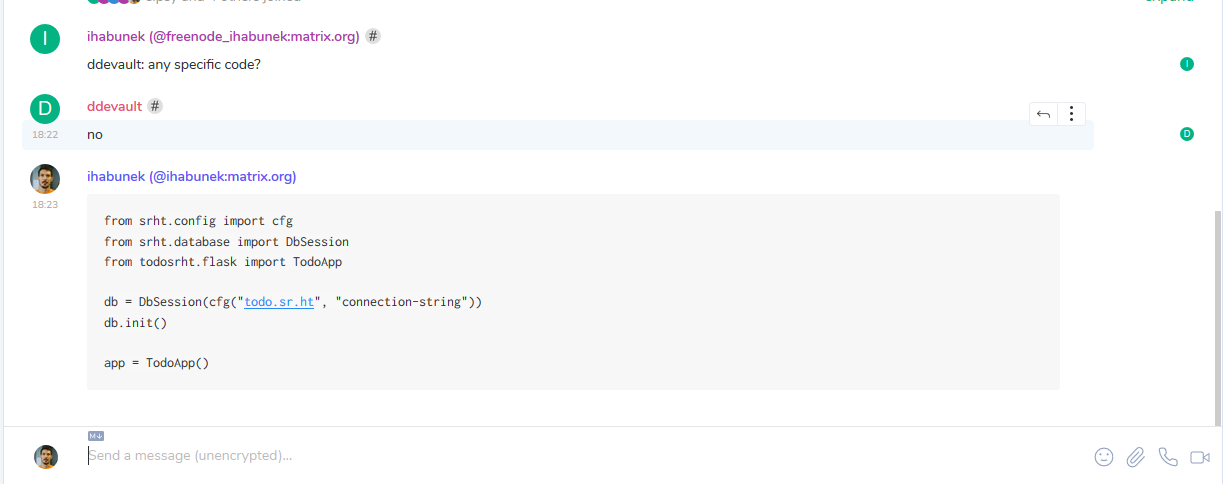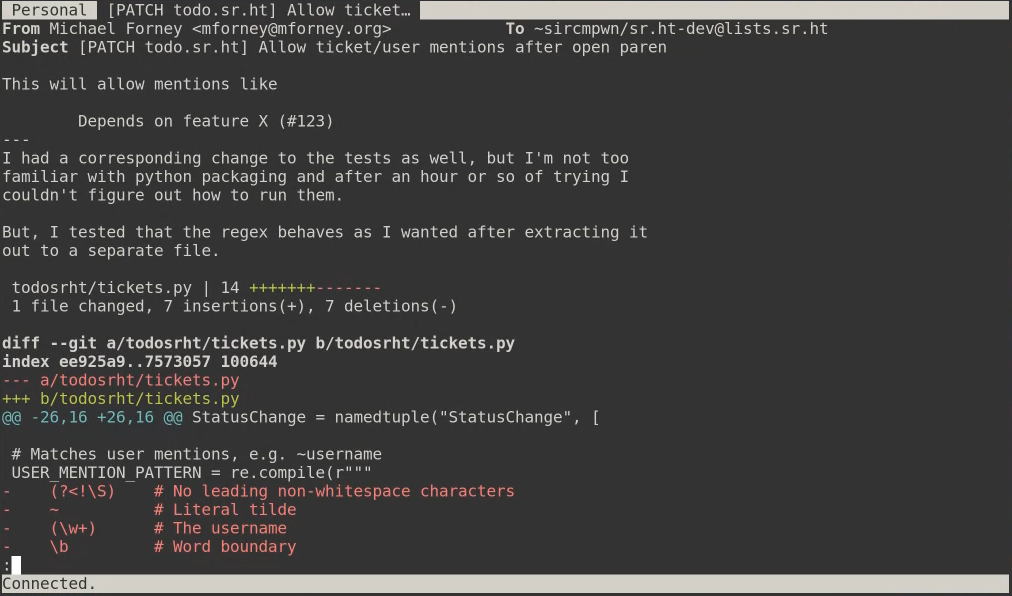Feed digilinux.ru [copy] http://digilinux.ru/feed/ has loading error: cURL error 22: The requested URL returned error: 403 Forbidden
Feed freepost [copy] https://freepo.st/rss/new has loading error: cURL error 22: The requested URL returned error: 500
Cubic Tower
Cubic Tower is a classic arcade game that has made its way from the old-school arcade machines to modern mobile devices and desktops. In this new version, I’ve switched to the latest build of my custom C++ engine AGE, refreshed …
Announcing code annotations for SourceHut

Today I’m happy to announce that code annotations are now available for SourceHut! These allow you to decorate your code with arbitrary links and markdown. The end result looks something like this:
NOTICE: Annotations were ultimately removed from sourcehut.
SourceHut is the "hacker's forge", a 100% open-source platform for hosting Git & Mercurial repos, bug trackers, mailing lists, continuous integration, and more. No JavaScript required!The annotations shown here are sourced from a JSON file which you can generate and upload during your CI process. It looks something like this:
{
"98bc0394a2f15171fb113acb5a9286a7454f22e7": [
{
...
 Drew DeVault's blog
Drew DeVault's blog
Absence of certain features in IRC considered a feature

The other day a friend of mine (an oper on Freenode) wanted to talk about IRC compared to its peers, such as Matrix, Slack, Discord, etc. The ensuing discussion deserves summarization here. In short: I’m glad that IRC doesn’t have the features that are “showstoppers” for people choosing other platforms, and I’m worried that attempts to bring these showstopping “features” to IRC will worsen the platform for the people who use it now.
On IRC, features like embedded images, a nice UX for messages longer than a few lines (e.g. pasted code), threaded messages, etc; are absent. Some sort of “graceful degradation” to support mixed channels with clients...
Status update, June 2019
Summer is in full swing here in Philadelphia. Last night I got great views of Jupiter and a nearly-full Moon, and my first Saturn observation of the year. I love astronomy on clear Friday nights, there’s always plenty of people coming through the city. And today, on a relaxing lazy Saturday, waiting for friends for dinner later, I have the privilege of sharing another status report with you.
First, I want to talk about some work I’ve done with blogs lately. On the bottom of this article you’ll find a few blog posts from around the net. This is populated with openring, a small Go tool I made...
My personal journey from MIT to GPL
As I got started writing open source software, I generally preferred the MIT license. I actually made fun of the “copyleft” GPL licenses, on the grounds that they are less free. I still hold this opinion today: the GPL license is less free than the MIT license - but today, I believe this in a good way.
If you haven’t yet, I suggest reading the MIT license - it’s very short. It satisfies the four essential freedoms guaranteed of free software:
The right to use the software for any purpose. The right to study the source code and change it as you please. The right to redistribute the software to...Initial pre-release of aerc: an email client for your terminal

After years of painfully slow development, the aerc email client has seen a huge boost in its pace of development recently. This leads to today’s announcement: aerc 0.1.0 is now available! After my transition to working on free software full time allowed me to spend more time on more projects, I was able to invest considerably more time into aerc. Your support led us here: thank you to all of the people who donate to my work!
I’ve prepared a short webcast demonstrating aerc’s basic features - give it a watch if you’re curious about what aerc looks like & what makes it interesting.
...What is a fork, really, and how GitHub changed its meaning
The fork button on GitHub - with the little number next to it for depositing dopamine into your brain - is a bit misleading. GitHub co-opted the meaning of “fork” to trick you into participating in their platform more. They did this in a well-intentioned way, for the sake of their pull requests feature, but ultimately this design is self-serving and causes some friction when contributors venture out of their GitHub sandbox and into the rest of the software development ecosystem. Let’s clarify what “fork” really means, and what we do without GitHub’s concept of one - for it is in this difference that we truly discover how...
ToxCon 2019

This October the Tox developer community will be holding its third annual conference at Metalab in the heart of Vienna, Austria. The event will be 3 full days, from Friday, October 11th to Sunday, October 13th.
We will talk about Tox, and other security related and interesting topics. If you would like to attend, meet the Tox devs, do some live hacking, or just socialize — get a free ticket and reserve a T-shirt. You can find the exact address on your ticket.
Want to give a talk about your project? Please apply here!
If you have any questions about booking, travel arrangements,...